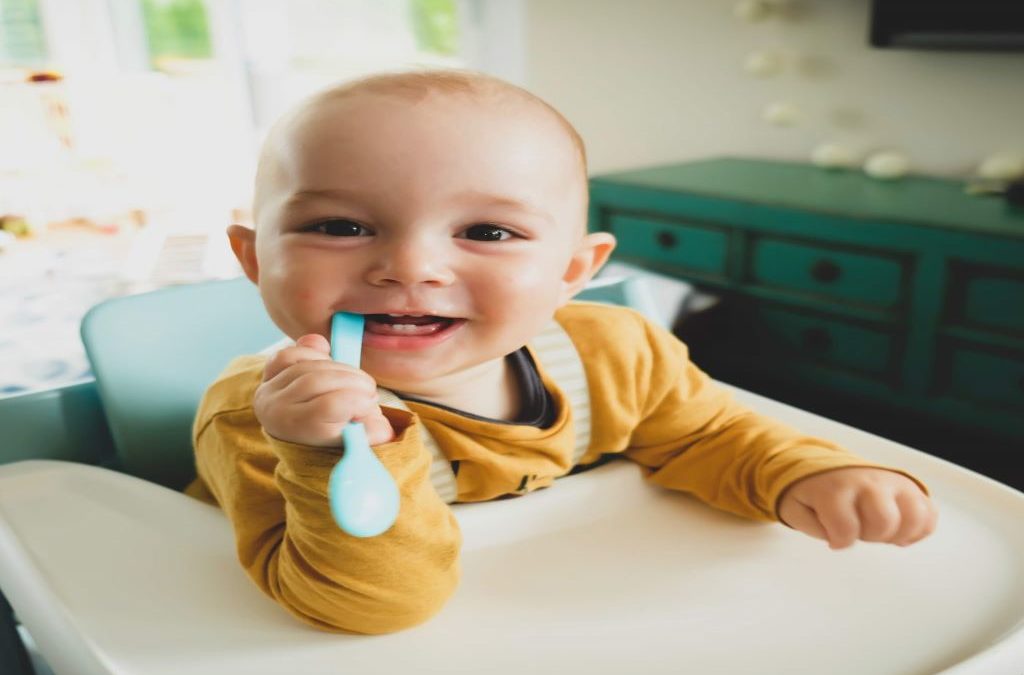Maintaining your child’s dental health during their early years is a big part of parenthood. Starting from the age of six months, your baby will begin teething. It’s during this period that your child’s primary teeth, better known as baby teeth, start growing. Teething can be extremely painful for your child, and your baby’s oral health will require a lot of care and attention. Then, of course, the next milestone is when the first tooth falls out because their adult teeth are coming through, and you begin making more visits as the tooth fairy. (Or as you probably explain to your kids, the tooth fairy starts visiting more!)
One question dentists often hear is: If baby teeth are going to fall out eventually anyway, how important is it to keep them healthy?
Dental Health in Babies
Babies have teeth at birth, but they just haven’t grown through yet. Once they do, they will help a child eat, smile, and speak.
Enamel is the thin outer layer of a tooth that protects it and covers the crown. It is vital for preserving the structure of the tooth. Enamel is the hardest piece of tissue in the human body. However, in babies, the enamel is much thinner compared to when they are older. The thinner enamel means that babies and infants are much more susceptible to tooth decay and cavities if you don’t maintain adequate oral care.
Early decay can require treatment at a young age for children, including tooth extraction under general anaesthetic. While this is bad in itself, not falling out naturally can cause problems further down the line.
Alignment and Positioning
Primary teeth hold their own space in the jaw and gums for permanent adult teeth. An adult tooth grows under the gums while your child has their primary set.
Part of the primaries’ function is to guide the adult tooth into its proper position as it grows into an area that currently has another tooth in its place. When a tooth falls out unnaturally because of tooth decay, adult teeth can drift or tip into that space, or the decay can delay their eruption.
The crowding leaves less room for permanent teeth to grow and can make a child’s gums crowded and crooked. As well as being painful, your child may require braces later in life to fix this issue.
Healthy Adult Teeth
Developing under and in the spaces of a baby tooth, an adult tooth grows and strengthens close to the roots of the primaries. Because they are that much smaller and weaker compared to permanent sets, cavities and decay can spread very rapidly through a child’s enamel. (Remember, child enamel is much weaker compared with an adult.)
If allowed to go untreated, a cavity can cause severe infection or an abscess. The issues will hinder development and damage the adult tooth that is growing beneath it.
Development of Speech
Teeth are crucial to speaking and proper pronunciation. The tongue, lips, and cheek work with the teeth to form sounds, and if baby teeth are healthy and have the correct positioning, they help children pronounce words correctly.
Teeth also help babies to form words by affecting the airflow out of their mouths. As a child tries to speak more and more, they learn to make certain sounds when their tongue moves and hits their teeth in different ways.
This process cannot progress if you need to remove baby teeth prematurely, and problems at this stage can continue to affect them as they get older if permanent teeth grow incorrectly.
Call Dentrix Dental
Primary teeth are critical to a child’s development, helping them to smile and chew and holding space for adult teeth, so it is vital to maintain excellent dental hygiene at this stage in your child’s life. Ensuring great oral care now sets a good precedent for later life and stops tooth decay setting in early.
If you have any questions or would like to make an appointment for your child, feel free to contact us today.

